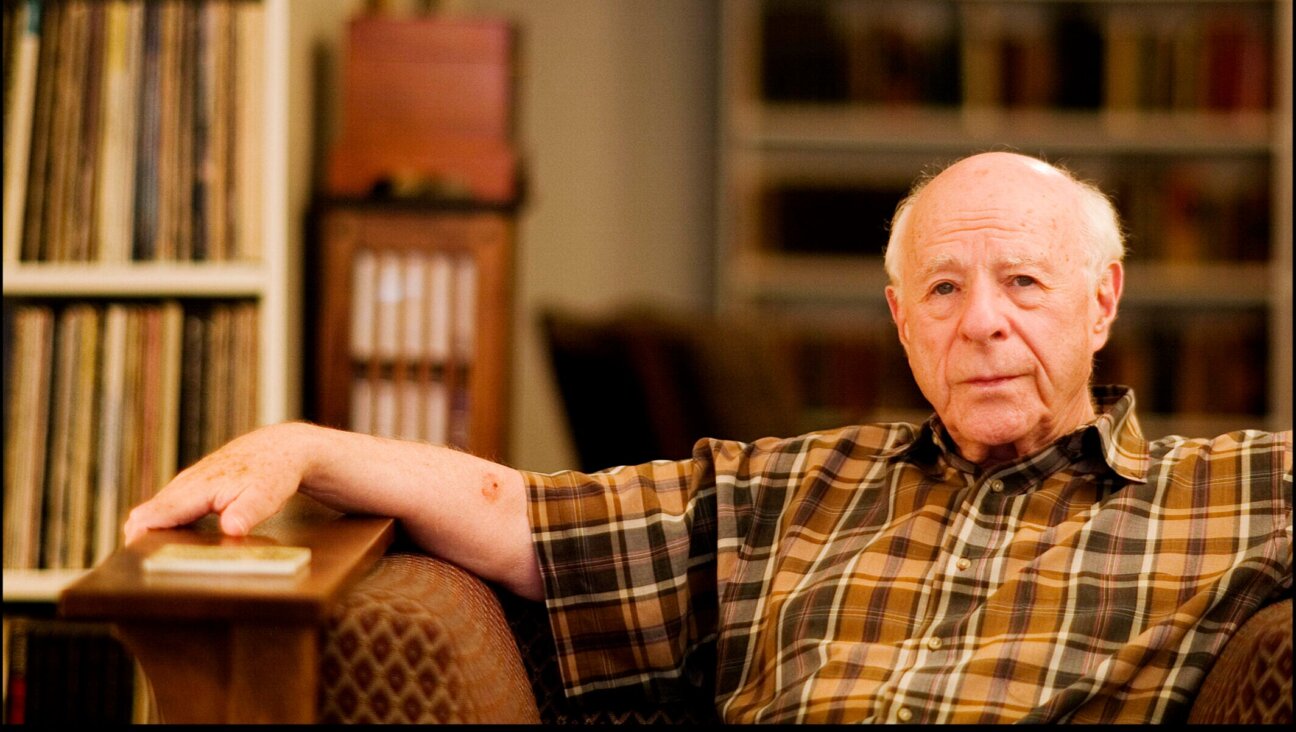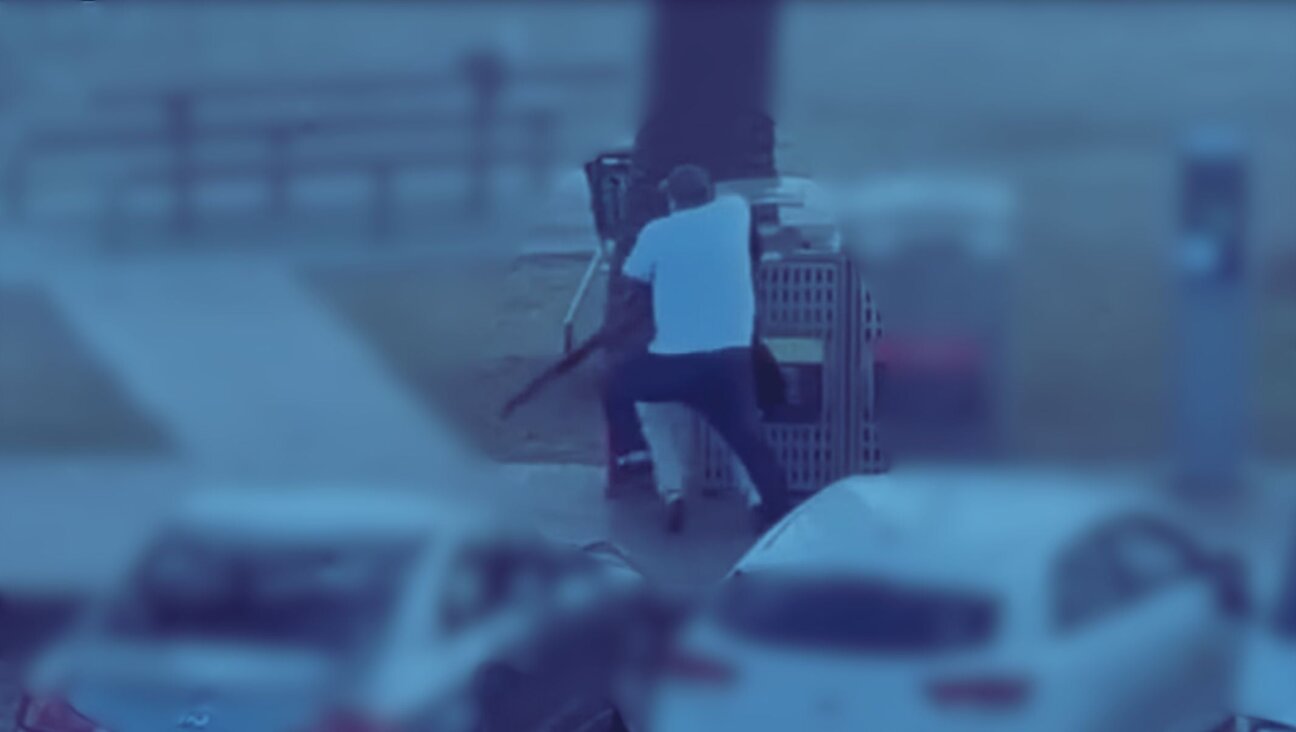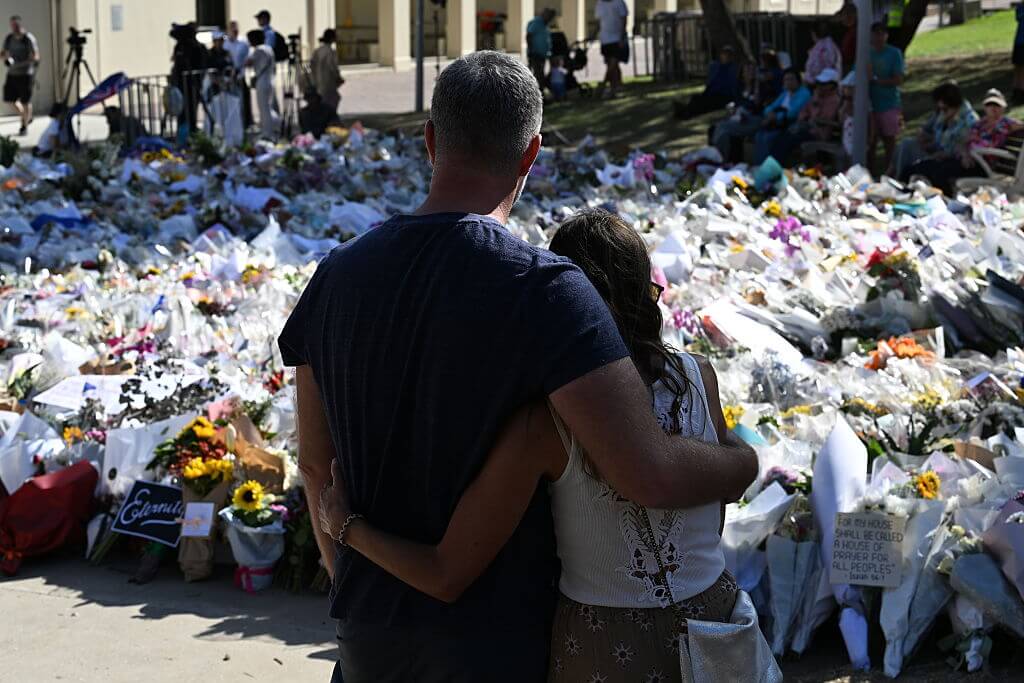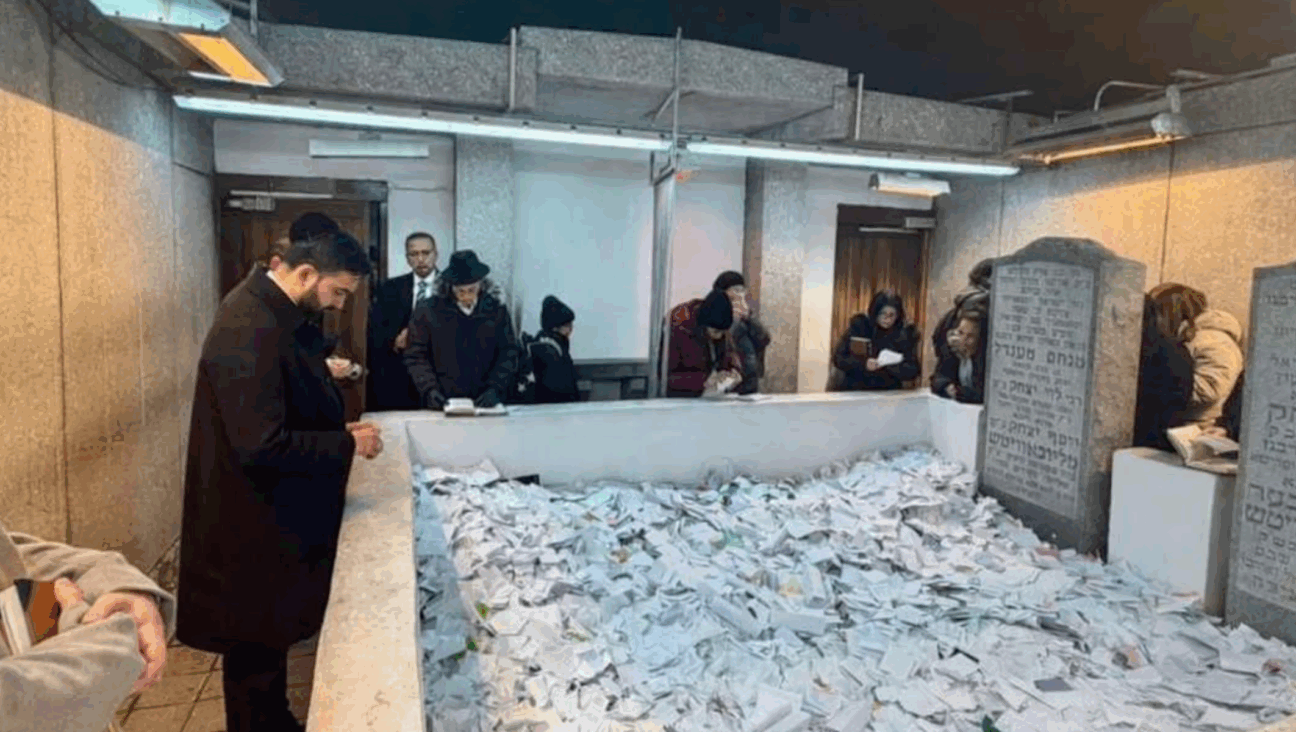With Major D.C. Rally, Former Pol Sets New Communal Course
WASHINGTON — Among the tens of thousands of people who gathered in Washington Sunday to press for greater intervention in Darfur, there were a number of speakers known for garnering accolades, including Oscar-winner George Clooney, Nobel Laureate Elie Wiesel and Olympic speed-skating gold medalist Joey Cheek.
Then there was Ruth Messinger, a woman who is perhaps still best known for the defeat she suffered in the 1997 New York City mayor’s race against Rudolph Giuliani — but who is now winning a chorus of praise. As president and executive director of the American Jewish World Service, Messinger, more than any other single leader, is being credited with organizing the rally and with thrusting the Sudanese region of Darfur to the top of the Jewish communal agenda.
Along with almost 20 smaller rallies held around the country on the same day, the rally registered as the largest public action to date to draw attention to the mass violence in Darfur, which in three years has claimed more than 200,000 lives and seen at least 2 million more forced into refugee camps in Sudan and in neighboring Chad. The killings have been described as genocide by the Bush administration as well as by Jewish organizations and other groups.
Several Jewish communal leaders contacted by the Forward credited Messinger with spearheading a mobilization of Jews for a cause not directly related to Jewish interests or to Israel.
“She really filled a vacuum,” said Nancy Kaufman, executive director of the Jewish Community Relations Council of Greater Boston. “There was no one who was really being a moral voice for vulnerable people in the world,” and she has been a “moral compass.”
“We can become the leaders we have been waiting for,” Messinger told the demonstrators who gathered at the National Mall in Washington. “It is time for the world to take notice; we are on the march.”
Messinger appears to have identified a cause that can speak to liberals alienated from influential Jewish organizations that tend to stake out more hawkish foreign policy positions, while also attracting the support of the rest of the community. The Darfur rally drew Orthodox and Reform contingents, gained endorsements from the main Jewish Democratic and Republican organizations, and was hailed by both supporters and opponents of the Iraq war.
Open warfare erupted in Darfur in early 2003 when two rebel groups attacked military installations in an effort to redress the region’s chronic economic and political marginalization. The international community has accused the Sudanese government of responding to the rebels by dispatching militias known as Janjaweed, composed of fighters of Arab descent, which attacked the civilian population. The militias embarked on a wave of indiscriminate killing, looting and mass rape, as well as massive displacement. This week the White House sent Deputy Secretary of State Robert Zoellick to Nigeria in an attempt to jumpstart stalled negotiations over a treaty between the Sudanese government and rebel groups.
Jewish groups said they would continue to build on the momentum created by the rally. Earlier this week, the Reform movement’s advocacy arm in Washington, the Religious Action Center, launched a “30 Days for Darfur” campaign, which will attempt to mobilize America’s faith communities to visit the consulates and embassies of NATO and African Union countries, as well as Russia and China and their U.N. offices, in order to press for the creation of a robust international peacekeeping force.
The world service and the nexis of 13 national organizations and 123 local communities under the umbrella of the Jewish Council for Public Affairs are meeting May 9 to plan the next stages of their campaign. Messinger said that she hoped to begin to mobilize grass-roots movements abroad. She is holding meetings with the Jewish communities in Canada and in France.
Since the beginning of her tenure in 1998, Messinger has transformed the world service from a modest volunteer organization to a major player in international fund raising and advocacy efforts. In January 2005, when President Bush convened roughly 20 heads of international relief agencies to discuss efforts to aid victims of the Southeast Asian tsunami, Messinger was invited to represent the Jewish community.
Messinger has made Darfur a major priority over the past two years, visiting the region twice and making more than 100 public appearances about the issue. On April 28 she was arrested outside the Sudanese Embassy in Washington along with lawmakers and other Jewish communal officials.
The April 30 events were sponsored by the Save Darfur Coalition, which, since its founding in July 2004 by the world service and the United States Holocaust Memorial Museum, has developed into an alliance of more than 150 religious and human rights groups but still has a disproportionate Jewish presence. The world service provided the initial funding to launch the coalition in 2004, and currently contributes one-third of its $1.6 million operating budget with the balance coming from individual donations and the sale of merchandise.
Other Jewish organizations have also played leading roles in the Darfur mobilization, most notably the Jewish Council for Public Affairs — which has worked with federations and Jewish Community Relations Councils around the country — and the Reform movement’s Religious Action Center.
While there are no official crowd estimates, a permit filed in January estimated the turnout at 15,000 to 20,000, which organizers believe has been exceeded. Jews — mobilized by local charitable federations, synagogues and Jewish day schools across the country — constituted a significant portion of the crowd, with 100 buses coming from New York City alone.
At the rally, the disproportionately high level of Jewish participation could be seen in special event T-shirts produced by the world service, the Reform movement, synagogues and Jewish youth groups, many bearing some variation on the post-Holocaust slogan, “Never Again!”
While Jews were a driving forced behind Sunday’s rally, the event was billed as a pluralistic affair that cut across religious, racial and ethnic lines. The day’s long list of speakers included Christian ministers; a top black leader, the Rev. Al Sharpton; Sudanese refugees; New Jersey Governor Jon Corzine, and House Minority Leader Nancy Pelosi.
A number of colleges sent contingents of students, many of them spearheaded by campus Hillel chapters. Fifty students traveled from North Park University, a Christian evangelical liberal arts college in Chicago. Howard University, a Washington-area black college, sent 20 to 30 students.
The main rally appeared to attract few substantial groups organized by individual churches or by Christian groups.
Doug Anderson, 37, an African- American from Fairfax, Va., said he decided to attend the rally with a few friends after hearing it advertised on the radio.
Kate Van Eck, 28, was one of about a dozen congregants of 1,000-member Bradley Hills Presbyterian Church in Bethesda, Md., who decided to attend the rally with dozens of members from Bethesda Jewish Congregation after Sunny Schnitzer, the cantor of the Reform synagogue, spoke at a church service that morning. Bradley’s minister did not attend.
Van Eck said she hadn’t been committed to attending the rally until she heard Schnitzer speak. “I wish that more Christians were involved in this, because I feel like it fits into our principles and its part of the responsibility to practicing our faith,” Van Eck said while holding up one end of the church’s banner. “I see people doing that in the Christian community when it comes to abortion or some other issues, but I don’t think we’ve been so good at that when it comes to people in other communities, or our own communities.”
Several Jewish communal leaders contacted by the Forward said that they had reached out to Christian leaders and were surprised to find that their calls for participation were not answered.
“They ignored us,” said one Jewish communal leader based in New York, who did not want to be named for fear of offending his interfaith colleagues. “We have been perplexed and troubled by the lack of response by non-Jewish New Yorkers, particularly among the African American communal leaders.”
Another Jewish communal leader who did not want to be named said he had expected the crowd to be 80% to 90% Jewish and that it was “embarrassing to the Christians and the blacks that more didn’t turn out.”
Rabbi Leonard Gordon of Philadelphia’s Germantown Jewish Centre said that efforts to organize a joint delegation of Jews, Christians and Muslims from that city had faltered after Muslim leaders declined to participate.
“Parts of the religious community have some very diverse sensitivities about this,” Gordon said. “Particularly in terms of the Muslim community, and how they feel the Islamic world is being constructed in the discourse around what’s happening in Darfur, so I’m really aware and I know that the [world service] is aware that the Jewish community’s leadership role here is a delicate one.”
Several major Muslim American groups are members of the Save Darfur Coalition, including the American Society for Muslim Advancement and the Council on American-Islamic Relations. But Imam Rashied Omar, a Notre Dame University professor who spoke on behalf of the Muslim community at the rally, said he believed that the community “could do better.”
“I think there were a couple of Muslim organizations that responded positively, but maybe we didn’t reach out enough and mobilize them enough,” Omar said.
















